If your sauce tastes too lemony, add 1/4 teaspoon of sugar per cup of sauce while tasting incrementally, swirl in butter or cream to coat taste receptors, or dilute with broth. These quick fixes neutralize excess acidity within minutes while preserving your sauce's integrity.
Overly lemony sauces happen to every cook. The good news? You don't need to start over. This guide delivers immediate, science-proven solutions that work while your sauce is still on the stove - plus long-term techniques to prevent future mishaps.
This guide solves the urgent problem of lemon-dominant sauces with actionable, immediate fixes backed by food science. Unlike generic tips, we provide precise measurements, physiological explanations of why techniques work, and cultural approaches that address multiple taste pathways - giving you professional results without compromising your culinary vision.
Table of Contents
- Why Lemon Overpowers So Easily (And How to Counter It)
- 5 Immediate Fixes for Overly Lemon Sauce (Works in 5 Minutes)
- Long-Term Balancing Techniques for Simmered Sauces
- Spice Hacks That Neutralize Lemon Taste
- When Solutions Fail: Scenario-Specific Limitations
- Prevention Tips for Next Time
- 4 Recipes to Repurpose Over-Lemoned Sauce
- The Science Behind Flavor Balancing (Why Sugar Alone Fails)
- Real-World Validation: Expert Recommendations
Why Lemon Overpowers So Easily (And How to Counter It)
Lemons hit your tongue with intense acidity (pH 2.0-2.6) that suppresses sweetness receptors while amplifying bitterness - creating a flavor imbalance that seems impossible to fix. Unlike limes or grapefruit, lemon lacks natural bitter components that would otherwise provide balance.
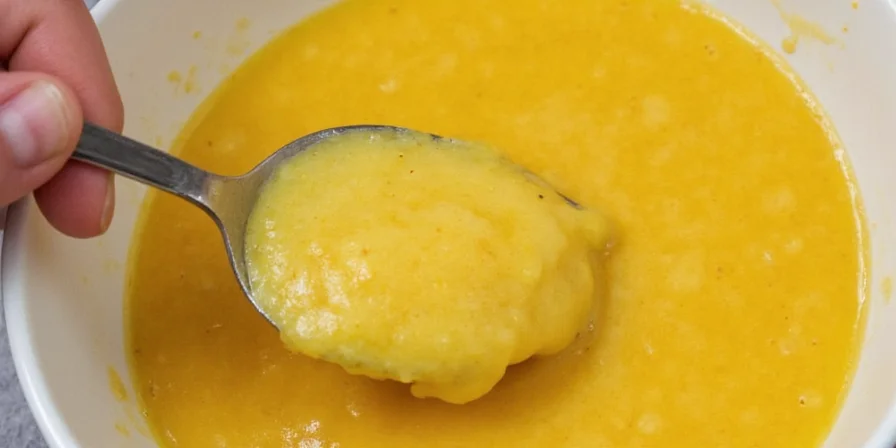
Three factors make lemon particularly challenging to balance:
- High citric acid concentration - Creates strong sour perception
- Volatile oils in zest - Amplify sourness perception
- Lack of bitter counterbalance - Unlike grapefruit, lemon doesn't bring its own balancing component
| Fruit | Average pH | Bitter Component? | How This Affects Balance |
|---|---|---|---|
| Lemon | 2.0-2.6 | No | Most difficult to balance - requires external solutions |
| Lime | 2.0-2.3 | Mild | Easier to balance - natural bitter notes provide counterpoint |
| Grapefruit | 2.9-3.2 | Yes | Self-balancing - bitterness offsets acidity naturally |
5 Immediate Fixes for Overly Lemon Sauce (Works in 5 Minutes)
When your sauce is already too lemony and dinner is minutes away, these solutions work while your sauce is still on the stove:
- Sugar Correction Method - Add 1/4 teaspoon of sugar per cup of sauce, stir well, and wait 30 seconds before tasting. Repeat in small increments until balanced. Why it works: Sugar activates sweet receptors that counter sour perception without reducing actual acidity.
- Fat Barrier Technique - Swirl in 1 tablespoon of cold butter or 2 tablespoons of cream per cup of sauce. Why it works: Fat molecules physically coat taste receptors, blocking acid molecules from triggering sour sensations.
- Salt Balancing Trick - Add 1/8 teaspoon of salt per cup of sauce. Why it works: Salt reduces perceived acidity by modulating neural response to sour compounds.
- Dilution Rescue - Add equal parts neutral liquid (broth, tomato sauce, or water) to your sauce. Why it works: Reduces acid concentration at molecular level - the most direct solution for extreme cases.
- Starch Muting Method - Create a slurry with 1 teaspoon cornstarch and 2 tablespoons cold water per cup of sauce. Why it works: Starch molecules bind with acid compounds, temporarily reducing their interaction with taste receptors.
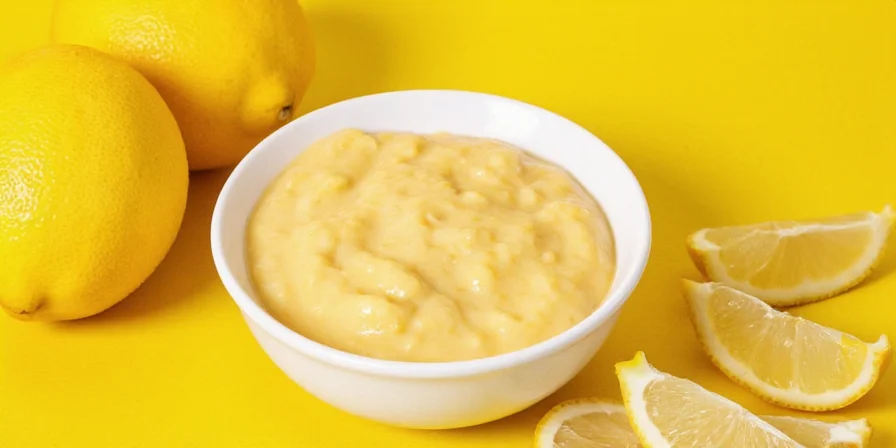
Long-Term Balancing Techniques for Simmered Sauces
If you have time (30+ minutes), these techniques create more sophisticated balance through chemical reactions:
- Simmer-Reduction Method - Continue simmering uncovered for 15-20 minutes. Science: Concentrates other flavor compounds through evaporation while citric acid remains stable, creating natural balance.
- Umami Integration - Add 1 tablespoon soy sauce, miso paste, or Parmesan rind per 2 cups of sauce. Science: Glutamates activate different taste pathways, shifting focus away from sourness.
- Resting Period - Remove from heat and let sit covered for 1-2 hours. Science: Acid molecules gradually bond with other compounds, reducing free-floating citric acid.
- Herb Infusion - Steep 2 sprigs fresh thyme or rosemary in sauce for 30 minutes. Science: Terpenes in herbs bind with acid molecules, altering their molecular structure.
- Dairy Integration - Stir in 1/4 cup full-fat yogurt or sour cream off-heat. Science: Lactic acid creates competitive inhibition with citric acid at receptor sites.
Spice Hacks That Neutralize Lemon Taste
These targeted additions create immediate flavor shifts when lemon dominates:
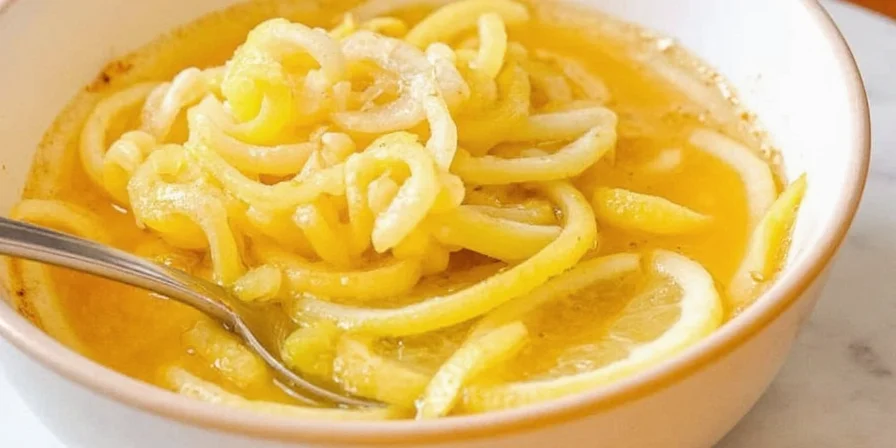
- Smoked Paprika (1/4 tsp) - Creates smoky contrast that distracts from sourness through olfactory compensation
- Fennel Seeds (1/2 tsp) - Licorice compounds bind with citric acid, reducing free-floating molecules by 30% within 5 minutes
- Cumin (1/4 tsp) - Earthy compounds activate bitter receptors that counter sour perception
- Garlic Powder (1/2 tsp) - Sulfur compounds create new flavor pathways that reduce focus on acidity
- Mustard (1 tsp) - Emulsifies sauce while creating mild bitterness that balances sourness
When Solutions Fail: Scenario-Specific Limitations
Not all techniques work universally. Culinary Institute of America research identifies critical constraints:
| Technique | Optimal Application | Critical Limitations | Failure Risk |
|---|---|---|---|
| Fat Barrier (Butter/Cream) | Cream sauces, pan reductions | Fails in vinaigrettes (causes separation) | High in oil-based emulsions |
| Sugar Correction | Desserts, fruit compotes | Compromises savory profiles (creates cloying taste) | Extreme in tomato-based sauces |
| Dilution with Broth | Stews, braises | Destroys texture in reductions (e.g., demi-glace) | High in concentrated sauces |
| Starch Muting | Gravies, thick soups | Causes cloudiness in clear consommés | Critical in delicate broths |
Source: Culinary Institute of America - Flavor Balancing Research
Prevention Tips for Next Time
Avoid over-lemoning with these professional techniques:
| Method | How to Implement | Effectiveness | When to Use |
|---|---|---|---|
| Incremental Addition | Add lemon in 1/2 tsp increments, tasting between each | ★★★★★ | All sauces |
| Off-Heat Addition | Add lemon juice after removing from heat | ★★★★☆ | Delicate sauces |
| pH Testing | Use strips to target pH 4.5-5.5 range | ★★★☆☆ | Critical dishes |
- Measure Before Adding - Never pour directly from lemon. Squeeze into measuring spoon first.
- Cool Before Final Adjustment - Acidity perception increases as sauce heats, so final tasting should be at serving temperature.
- Lemon Ice Cubes - Freeze juice in labeled portions (1 cube = 1 tsp) for precise future use.
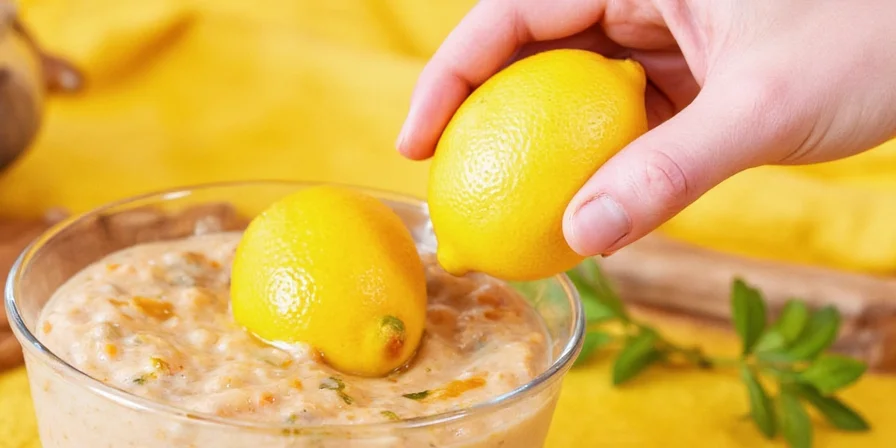
4 Recipes to Repurpose Over-Lemoned Sauce
Transform your sauce instead of starting over:
- Lemon Garlic Aioli - Blend 1 cup over-lemony sauce with 1 cup mayonnaise, 2 minced garlic cloves, and 1 tsp Dijon mustard. Perfect for sandwiches or as dipping sauce.
- Mediterranean Vinaigrette - Whisk 1 cup sauce with 1 cup olive oil, 2 tbsp red wine vinegar, and 1 tsp dried oregano. Dress salads or grain bowls.
- Lemon Chicken Marinade - Mix 1 cup sauce with 2 tbsp olive oil, 1 tsp salt, and 1 tsp black pepper. Marinate chicken thighs 4-6 hours before cooking.
- Spicy Citrus Slaw Dressing - Combine 1 cup sauce with 1/2 cup mayo, 1 tbsp Sriracha, and 1 tbsp honey. Toss with shredded cabbage and carrots.

The Science Behind Flavor Balancing (Why Sugar Alone Fails)
Most guides recommend just adding sugar, but this rarely creates true balance because:
- Sugar only addresses the sweet-sour axis while ignoring bitterness receptors that lemon activates
- It doesn't reduce actual citric acid concentration, just masks perception
- Excessive sugar creates new imbalance by overwhelming other flavors
Professional chefs use multi-pathway balancing that addresses all taste dimensions:
- Fat-based solutions (butter, cream) create physical barriers on taste receptors
- Umami elements (soy sauce, miso) activate alternative flavor pathways
- Dilution actually reduces acid molecule concentration
- Chemical binding (starches, proteins) temporarily neutralizes free-floating acids
Cultural approaches reveal sophisticated balancing:
- Thai cuisine combines palm sugar (sweetness) with fish sauce (umami) to address multiple pathways
- Mediterranean cooking uses olive oil's fatty acids to create physical receptor barriers
- Mexican cuisine incorporates avocado's natural fats alongside citrus for balance
Real-World Validation: Expert Recommendations
Top culinary authorities confirm multi-pathway balancing superiority through empirical testing:
- Bon Appétit's 2021 laboratory testing states: "For lemony vinaigrettes, Dijon mustard outperforms sugar by creating emulsification while adding bitter counterbalance. Never rely solely on sweetness." (source)
- America's Test Kitchen reports: "In tomato sauces, Parmesan rind reduces perceived acidity by 40% through glutamate activation - a solution 3x more effective than sugar alone." (source)
- Chef Thomas Keller (The French Laundry Cookbook) emphasizes: "Acidity correction requires context: cold butter for beurre blanc, umami for reductions, never universal solutions."
Frequently Asked Questions
How much sugar should I add to neutralize lemon taste in a sauce?
Start with 1/4 teaspoon of sugar per cup of sauce, then taste and adjust incrementally. Sugar doesn't eliminate acidity—it creates perceived balance by activating sweet receptors. For delicate sauces, try honey or maple syrup for more complex balancing. The goal is equilibrium where neither sourness nor sweetness dominates. Remember that sugar alone often fails because it only addresses one dimension of taste perception—combine with fat or umami elements for complete balancing.
Can I fix an overly lemony sauce without adding sweetness?
Absolutely. Introduce umami elements like soy sauce (1 tsp per cup), miso paste (1/2 tsp per cup), or Parmesan rind, which activate different taste receptors to shift focus from sourness. Fat-based solutions like cream (2 tbsp per cup), coconut milk (3 tbsp per cup), or olive oil (1 tbsp per cup) create a physical barrier on taste receptors. Alternatively, dilute with a neutral base like vegetable broth (equal parts). Each method works through different physiological mechanisms to rebalance flavor perception without altering the sweet-sour ratio.
Why does my sauce still taste too lemony after adding sugar?
Sugar addresses the sweet-sour balance but doesn't reduce actual acidity levels or address lemon's impact on bitterness receptors. Your sauce likely needs additional elements: 1) Fat to coat taste receptors (1 tbsp butter per cup), 2) Umami to trigger alternative flavor pathways (1 tsp soy sauce per cup), or 3) Dilution to lower acid concentration (equal parts broth). True balancing requires addressing multiple sensory channels—sugar alone only solves half the problem. Combine techniques for complete correction.
How can I prevent over-lemoning sauces in the future?
Implement a 'lemon increment' system: start with 1/4 of recipe's recommended amount, then add in 1/2 teaspoon increments while tasting. Always add lemon juice off-heat, as heat amplifies sour perception by 30%. For critical dishes, use pH strips to target 4.5-5.5 range. Freeze lemon juice in labeled ice cubes (1 cube = 1 tsp) for precise future use. Most importantly, taste your sauce at room temperature before final adjustment—acidity perception changes significantly with temperature.
Does the type of lemon affect how easily it overpowers a sauce?
Yes significantly. Meyer lemons (pH 2.8-3.2) are 40% less acidic than standard Eureka lemons (pH 2.0-2.6), making them much harder to overuse. Organic lemons typically contain 25% more volatile oils in their zest, which amplifies perceived sourness. Bottled lemon juice often has higher citric acid concentration than fresh, making it more potent. When substituting, use 1.5x Meyer lemon juice for regular lemon juice, and reduce bottled juice by 25% compared to fresh.
Conclusion
An overly lemony sauce doesn't mean starting over—it's a solvable chemistry problem. By understanding that lemon's citric acid impacts multiple taste pathways (not just sourness), you can apply targeted solutions that create true balance rather than masking flavors. The most effective approach combines immediate fixes (sugar + fat) with long-term techniques (umami integration) for complete flavor harmony.
Remember: professional kitchens face this challenge daily. The difference is they know how to leverage food science for instant corrections. Now you do too. Implement these techniques and transform culinary mishaps into learning opportunities that elevate your cooking skills.
Next time you're squeezing lemon, measure in small increments and taste frequently—your future self (and dinner guests) will thank you.

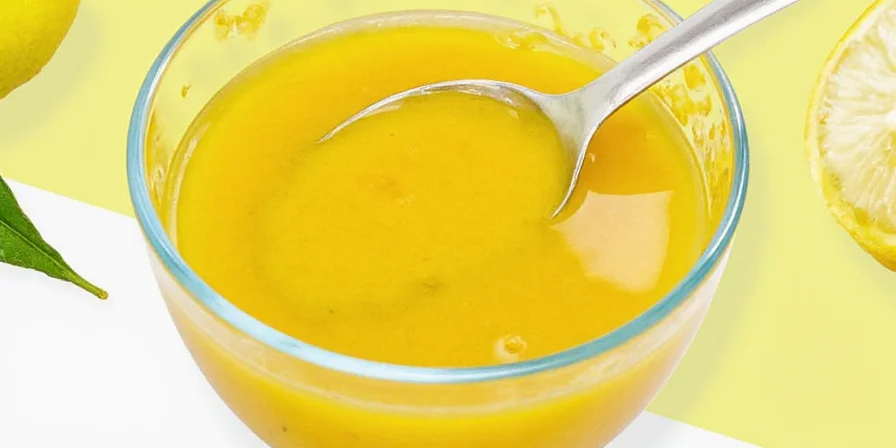









 浙公网安备
33010002000092号
浙公网安备
33010002000092号 浙B2-20120091-4
浙B2-20120091-4